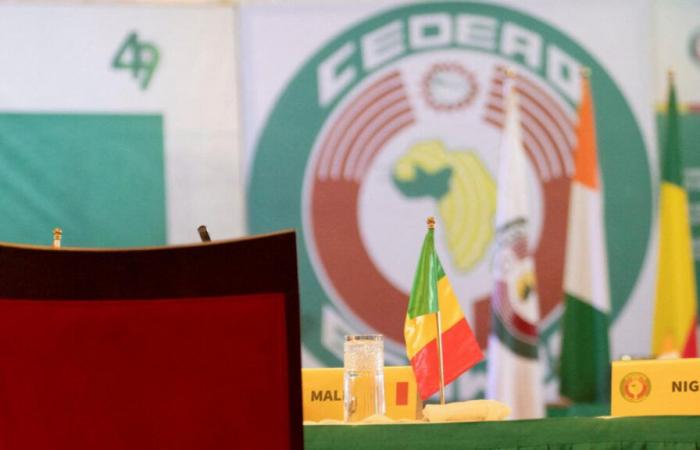In West Africa, are we heading towards an “amicable divorce” between an ECOWAS of twelve countries and an Alliance of Sahel States, which will bring together the other three? Last Sunday in Abuja, the twelve countries which remain attached to ECOWAS offered six additional months of reflection to the three countries, Mali, Niger and Burkina Faso, which want to leave the sub-regional organization. Could these three countries return to the Cédéao house by July 29? Gilles Yabi is the founder of Wathi, the West African citizen think tank. Online from Dakar, he responds to Christophe Boisbouvier.
RFI: The ECOWAS heads of state still hope to bring the three AES states back into their organization by July 29. Do they have a chance of getting there?
Gilles Yabi: I think the chances remain limited. The political interest of the three leaders of the Sahel countries is to remain coherent since they made this decision. And therefore, it is difficult to see a change of position, at least for these three countries, Mali, Niger, Burkina Faso. I remind you that this decision was taken without consulting the populations. It was taken by the leaders of these three countries who arrived by coup d'état. So, in the event of separation, what remains the most likely hypothesis is that we move towards an “amicable divorce”. Now we can't rule out anything. Obviously, the diplomatic efforts of the Senegalese president and the Togolese president could always end up changing their minds, but I don't have much faith in it.
Last Friday, the three AES countries declared that their departure from ECOWAS was irreversible. What is the advantage for them of leaving ECOWAS?
It is the act of evading obligations linked to the ECOWAS additional protocol on democracy and good governance. So, not to be linked, for example, to the obligation to organize elections at a given time. Maybe even [de ne pas être lié] to the principle that had been established by the African Union, namely that heads of state who arrive by military coup, even if they remain during the transition, are not authorized to present themselves at the end of these transitions. So, by leaving ECOWAS, they free themselves from all the obligations, from all the principles which are supposed to govern the space of the region.
The three AES countries are leaving ECOWAS. But, at the same time, they say they are ready to maintain visa exemptions for ECOWAS nationals on their territory. Why this gesture?
I believe that it is a question of showing in a certain way that they are not in an approach of brutal rupture with the other countries of the community. And perhaps also in a very pragmatic way, I think that the leaders of these three states are very aware of the importance of economic relations with neighboring coastal countries. They know the figures for migratory flows between their country and neighboring countries. When we look at the most important corridors, we will see the Burkina Faso – Ivory Coast or Mali – Ivory Coast corridors for example, which are very important. So, that means that you have a huge number of Sahelian populations living in these countries, in particular Ivory Coast, but also Senegal. And therefore, deciding that there will be a visa exemption for nationals of ECOWAS member countries is a way of leading ECOWAS to decide to maintain a visa exemption for Sahelian populations.
For example, will the Ivorian authorities be ready to grant this reciprocity, this visa exemption, to the approximately six million Malians and Burkinabè who live on Ivorian territory?
We must not lose sight of the most important issues that concern populations. From my point of view, I think that Côte d'Ivoire and other ECOWAS countries will not decide to apply visas simply because relations are once again difficult and because the Sahel States would have withdrawn from ECOWAS.
Isn’t what the three AES countries are asking for an à la carte ECOWAS? An ECOWAS in which they would keep the economic advantages while getting rid of the political disadvantages?
So it is true that, behind the question of countries leaving the AES, there also arises the question of the choice to continue to believe in an ideal of political integration with values, with principles of constitutional convergence. This is really all that was recorded in the additional protocol on democracy and good governance of 2001. And, today, very clearly, we have a part of the leaders of the region who do not really believe in the mission of political integration. The risk is to say that, to bring back these States or to ensure that others will not leave, we will renounce the provisions of the additional protocol of democracy and good governance. And, from my point of view, this would obviously be extremely dangerous because ultimately, we risk having a return to authoritarian regimes where each leader will do what he wants in his country. And we have already experienced this in the past.






